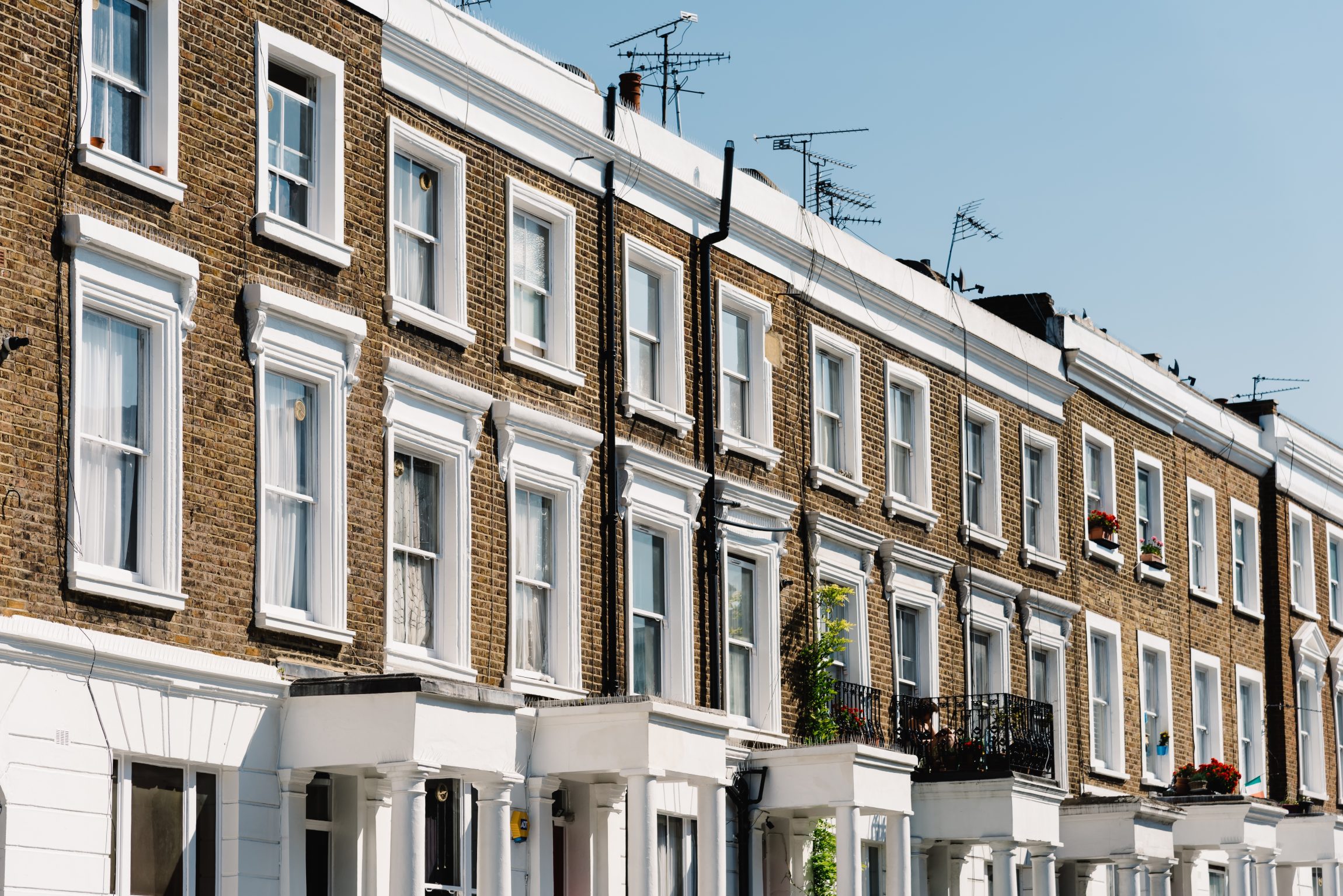BUY-TO-LET MORTGAGES
Mortgage smart and maximise profit with your expert buy to let brokers.
Even for hardened landlords, buy to let can be a bewildering market to navigate. With profit often turning on a knife-edge, it’s vital to choose the right property, with rental income that will satisfy your bottom line – and charges that won’t undercut it.
But before you even start your property search, it pays to approach a mortgage broker and discover your options.

Your property may be repossessed if you do not keep up repayments on your mortgage.
There may be a fee for mortgage advice. The actual amount you pay will depend on your circumstances. The fee is up to 1% but a typical fee is £495.
There is no guarantee that it will be possible to arrange continuous letting of the property, nor that rental income will be sufficient to meet the cost of the mortgage.
We’ll introduce you to trusted contacts at local estate agents who can help with the hunt – and stay by your side, all the way through to completion.
Whether this is your first buy to let project or the latest addition to your portfolio, The Mortgage Branch can help. Call us today on 01242 696235 or email hello@themortgagebranch.com.
We’ll support you with round-the-clock service, right through to completion.

MORTGAGE CALCULATOR
How much can I borrow?
Your total monthly payment
To discuss your options, call us today on 01242 696235
Please note that this is only an illustrative calculation and our brokers will be able to provide a more accurate affordability figure once they have discussed your current financial position.
KNOWLEDGE
Frequently asked questions
What is a Buy-to-Let mortgage?
The mortgage amount that can be borrowed is based on the rent that is likely to be achieved from the property and the applicant will typically need to have a 25% deposit to put down, as well as have some personal income to be able to cover rental voids, although there are lenders that will offer mortgages with a 20% deposit and also some lenders that do not have specific income requirements.
The mortgage can not be used for a property that you intend to live in, and they are typically taken out on an interest-only basis as they are seen as an investment property.
How can I get a mortgage?
The broker will have in-depth knowledge of the lender rates, criteria, and affordability calculations and will be able to advise you on the right mortgage for your needs.
How can I calculate a mortgage?
Most mortgages are taken out on a repayment basis and therefore the variables of amount, term, and rate need to be factored in.
If you were to take out an interest-only mortgage, assuming you met the qualifying criteria set by the lender, then to cost is simply the total loan amount (including any fees) multiplied by the initial rate and then divided by 12.
How does the Buying Process work?
Step 1 – Finding a property and agreeing on a purchase price
So, you have reviewed your circumstances and know what you can afford, and you have found the perfect property. Once you have negotiated and agreed on the purchase price the estate agent/developer will issue all parties with a memorandum of sale which will include all the necessary information for you and the vendor. This is not a binding contract but confirms the agreed purchase price at this point.
Step 2 – Mortgage application and instructing solicitors
The next stage is to confirm that you have found a house and had your offer agreed to your mortgage broker/advisor. They will then provide the necessary recommendations as well as gather all the necessary information and evidence required to submit your mortgage application.
At this point, you will also need to instruct a solicitor to open a file and start the preliminary checks to be able to act for you in your purchase.
Step 3 – Gaining agreement for the mortgage.
The mortgage application has been submitted and underwritten, all obstacles have been cleared and all additional queries have been satisfied for the lender to produce a mortgage offer.
Step 4 – Solicitor searches and making enquiries
Once the mortgage has been agreed and offered, your solicitor will start in earnest the rest of the work that they will have to do to ensure that the property you are buying is exactly what you are expecting. They may have completed some work, but without a mortgage offer, some solicitors will not want to do too much work as this will come at a cost if the mortgage isn’t offered and the purchase can’t complete.
The solicitors will carry out all appropriate searches (ensuring the property is registered property, boundaries are accurate, no disputes currently in place etc…) and also liaise with the acting solicitor on the vendor’s side to have any ‘enquiries’ (queries) satisfied prior to confirm they are happy for you to proceed with the purchase.
Step 5 – Managing the chain
If the property purchase is part of a ‘chain’ i.e. other purchases and sales that run from the bottom of the ladder to the top of the ladder then your solicitor will need to liaise with the other solicitors within the chain to arrange an appropriate exchange date – when all contracts are signed and deposits are sent up the chain.
Step 6 – Exchanging contracts
Once the chain has been agreed and everyone is ready, the solicitors will agree on an ‘exchange’ date. This is the moment that you sign the formal paperwork to say that you will, in law, buy the property. It is also the time that you will provide the deposit funds to be sent to the vendors, this will usually be an agreed percentage of the purchase price. At the point that contracts are signed and the deposit money is sent you are legally obliged to complete on the purchase. If you decide to not go ahead with the purchase at this point then you effectively forfeit the deposit money that you have put down.
Step 7 – Completion
Once the contracts have been signed at the exchange the solicitors will agree to a completion date. At this point, they send the Certificate of Title to the lender providing your mortgage as proof that everything is now in place to complete. The lender sends the mortgage funds to your solicitor and your solicitor will send these funds to the vendor’s solicitor to complete the purchase!
How much can I borrow for a mortgage?
How much you can borrow depends on a number of variables ranging from how much you earn, what debts you have in place that will continue, your family circumstances, your age, and your credit profile.
The best thing is to speak to a qualified mortgage broker who will be able to review your current financial position and then research the market to find out what the maximum affordability is for your unique financial position.
What is a lifetime mortgage?
The mortgage is taken out with no requirement to have to repay the original mortgage amount until they die.
They are generally taken out on an interest-only basis where the interest payments are made monthly. There are options to repay the mortgage amount should the person move/sell the property or decide that they wish to repay the mortgage on a normal repayment basis.
They work like any normal mortgage in that they are based on the income and financial position of the applicant and a normal mortgage application process is undertaken.
What is a mortgage in principle?
It is not a mortgage offer but gives a good indication of the ability to be able to apply for a mortgage and to be agreed to the mortgage assuming that all the information presented to the lender can be evidenced when a full mortgage application is submitted.
When you put down roots, so do we.
Working with our long-standing charity partner, Gloucestershire Wildlife Trust, we pledge to plant a tree in your name when your mortgage completes.
721
Trees planted
in the last 12 months

